[Overseas] ‘Talented Overseas Koreans Unite in Public Diplomacy for Unification, Discuss Building Global Solidarity for Peace on the Korean Peninsula,’ PUAC Holds 2025 Global Strategy Special Committee Conference
- Program Planning Division
- 04-23-2025 ~ 04-23-2025
‘Talented Overseas Koreans Unite in Public Diplomacy for Unification, Discuss Building Global Solidarity for Peace on the Korean Peninsula,’ PUAC Holds 2025 Global Strategy Special Committee Conference
The Peaceful Unification Advisory Council (Executive Vice-chairperson Kim Kwan-yong, Secretary General Tae Yong-ho) held the “2025 Global Strategy Special Committee Conference” from April 23 to 25 at the Ginzanso Hotel in Tokyo.
The conference aimed to build global solidarity for the peaceful unification of the Korean Peninsula. It brought together more than 40 PUAC members from 14 countries around the world and dignitaries.
The conference discussed topics such as strengthening cooperation between South Korea and Japan, expanding public diplomacy on unification, and expanding global networks. It also shared examples of public diplomacy on unification from various countries.
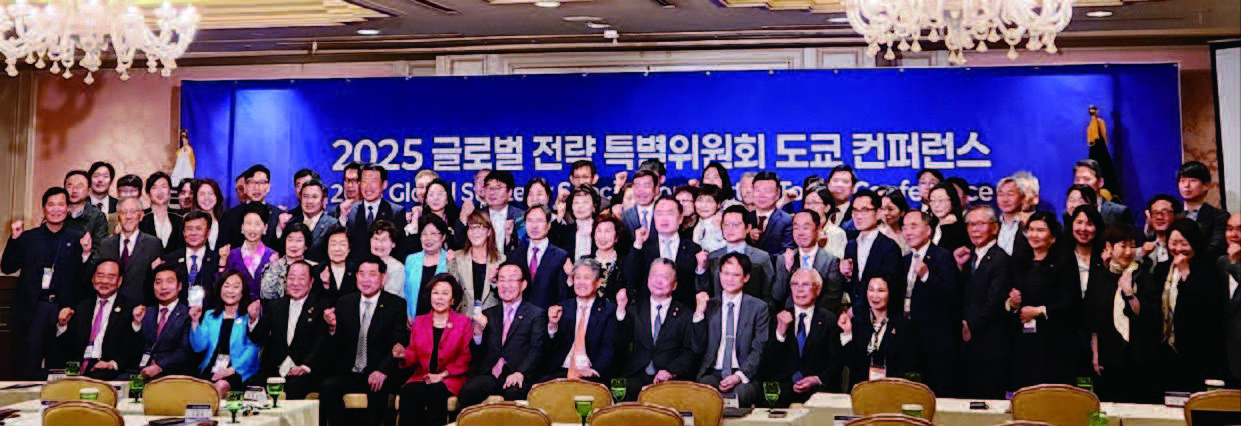
More than 100 PUAC members from 26 countries around the world who participated in the ‘2025 Global Strategy Workshop of the Global Strategy Special Committee,’ including Executive Vice-chairperson Kim Kwan-yong (6th from right), and Jin An-soon (6th from left), Chairperson of the Special Committee on Global Strategy, pose for a photo after the opening remarks.
The Global Strategy Special Committee is a consultative body composed of 101 talented overseas Koreans who are raising Korea's international profile by being active in various fields such as culture and arts, politics and diplomacy, medicine and law, economy and industry, and science and technology. The Global Strategy Special Committee was launched in August 2023 to help South Korea develop into a global pivotal country by forming a global network of talented overseas Koreans. Its members are responsible for advising on global strategies for the peaceful unification of the Korean Peninsula, building a network of Korean talent in each country, pulling together overseas Korean unification capabilities, and conducting public diplomacy for unification. The conference, the second event following a workshop in May of last year, drew more than 40 PUAC members from 14 countries around the world, and 100 other participants, including Executive Vice-chairperson Kim Kwan-yong, Japan Assembly Vice Chair Sohn Young-tae. The Global Strategy Special Committee was chaired by Executive Committee member Jin An-soon.
Solidarity with the international community amidst turbulent international order
Jin An-soon, chair of the Global Strategy Special Committee, said, “The year 2025 marks the 80th anniversary of Korea's liberation. It is our mission for future generations to remember our ancestors who achieved independence 80 years ago, and to gather strength for peaceful unification as descendants.” In his congratulatory remarks, Japan Assembly Vice Chair Sohn Young-tae said, “I look forward to a productive and forward-looking time for exploring ways to expand public diplomacy and global network for unification, as well as cooperation and solidarity between South Korea and Japan.”
Kim Jang-hyun, Political Minister at the South Korean Embassy in Japan said, “Cooperation with the international community is even more important in resolving the Korean Peninsula issue,” adding, “I look forward to discussing the future-oriented relationship between South Korea and Japan and the unification of the two Koreas.” In his congratulatory remarks, Kim Yi-jung, head of the Central Headquarters of the Korean Residents Union in Japan or Mindan, said, “I look forward to this event as an opportunity to gather public opinion from the overseas Korean community and the Japanese community for the peaceful unification of the Korean Peninsula, and to contribute to the strengthening of unification capabilities.”
Yuk Jong-moon, Head of the Eastern Japan Chapter, also reiterated that “South Korea and Japan ought to maintain close cooperation to pave the way for the unification of the Korean Peninsula together.”
Executive Vice-chairperson Kim Kwan-yong emphasized that “the more turbulent times in which the international order is being reorganized, the more important it is to strengthen security cooperation between South Korea, the United States and Japan, as well as broader economic cooperation around the world, which is the best strategy for the survival of nations and peoples.” Kim also pointed to the importance of Japan's cooperation in the unification issue, noting the importance of the people themselves solving diplomatic problems that cannot be solved by political leaders.
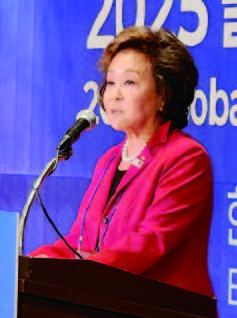
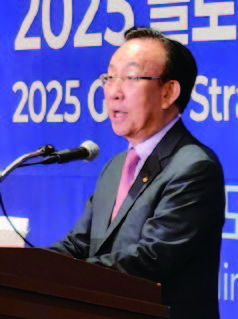
Jin An-soon, Chair of the Global Strategy Special Committee, emphasized that “remembering our ancestors who achieved independence 80 years ago, we, the descendants, must work together for peaceful unification for the sake of future generations.”
Executive Vice-chairperson Kim Kwan-yong emphasized that “the more turbulent times in which the international order is being reorganized, the more important it is to strengthen security cooperation between South Korea, the United States and Japan, as well as broader economic cooperation around the world, which is the best strategy for the survival of nations and peoples.”
In the discussion session that followed, more than 100 participants from the Global Strategy Special Committee and the Eastern Japan Chapter discussed ways to build global solidarity for the unification of the Korean Peninsula.
Professor Jung Dae-jin of Halla University said, “The current world order is not a situation in which South Korea can declare a thaw or détente on its own, but it is in a period in which glaciers are floating in the midst of a cold wave.” “In such an international situation, South Korea needs icebreaker diplomacy,” Jung said, suggesting that Korea utilize its national identity as a diplomatic asset.
Next presenter, Kobe University Professor Kan Kimura, shared the experience of Japan's failed public diplomacy and said, “Public diplomacy should serve to promote the interests of the nation and the people as a whole.”
“South Korea criticizes Japan for not supporting the unification of the Korean Peninsula, but it is important for South Korea to be specific about what kind of unification it envisions,” Kimura said.
In the discussion that followed, members of the special committee shared their experiences and recommendations based on their public diplomacy experiences in their respective fields.
Lee Ji-haeng, a member of the Guangzhou Chapter, said, “Generation MZ in China is not blindly opposed to unification.” Lee shared the results of a survey on unification awareness in Guangzhou.
“However, “they are wary of the possibility of unification to be led by South Korea and the consequent presence of U.S. troops in the border area. Peaceful unification of the two Koreas is perceived as an example that has important implications for peaceful unification of Taiwan and China,” Lee added.
Committee member Cho Yong-duk, Vice Head of the Central and Eastern African Chapter and Head of the Malawi Branch, introduced the achievements of regional cooperation projects in Malawi.
In 2023, a university in the capital of Malawi hosted the Sejong Institute, and cultural exchange through education is actively taking place, with local residents voluntarily learning Korean. He also noted that cooperation is also taking place in the medical field.
Yoon Sang-cheol, a member of the Central American and Caribbean Chapter, emphasized the importance of "allowing local people to think about the issue of unification on their own."
By promoting grassroots public diplomacy that actively reflects the needs and opinions of local people, the effectiveness of the event can be maximized, and the local people who participated in the planning and preparation will be able to grow into the next generation of pro-South Korean opinion leaders.
Sohn Hyun-jin, a member of the Western Japan Chapter said, "The North Korean nuclear issue and the abduction (of Japanese by North Korea) issue are not only shared by Japan but also by South Korea," adding, "The possibility of unified public diplomacy cooperation between Japan and South Korea is wide open." As a concrete measure of unification public diplomacy promoting the benefits of Korean unification to Japan, he suggested establishing a unification public diplomacy promotion organization that unites newcomers and old comers and organizing unification events that transcend ideology.
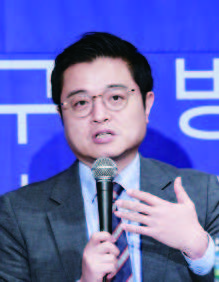
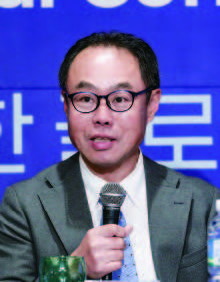
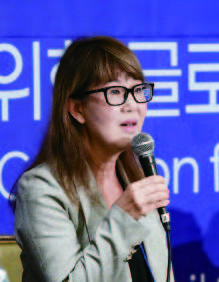
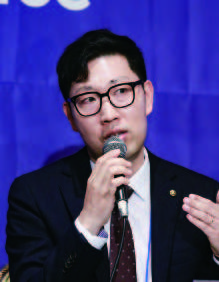
- Professor Jung Dae-jin of Halla University presents a plan to build global solidarity for the unification of the Korean Peninsula.
- Kobe University Professor Kan Kimura shared the experience of the failure of Japanese public diplomacy.
- Cho Yong-duk, Director of Daeyang University & Daeyang Luke Hospital, participating in the discussion.
- Lee Ji-haeng, professor at Guangdong Ocean University in China, participating in the discussion.
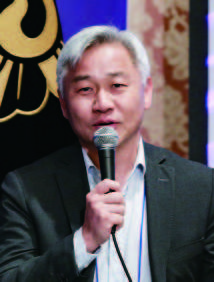
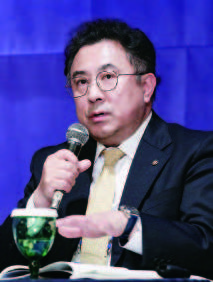
- Yoon Sang-cheol, Professor at Querétaro Institute of Technology, participating in the discussion
- Sohn Hyun-jin, Associate Professor, Hiroshima Peace Research Institute, Hiroshima City University, participating in the discussion
Discussion on the Status and Challenges of Public Diplomacy for Unification
In the afternoon, a business report was presented that covered the key issues for 2025, including promoting domestic and international consensus on unification, promoting local activities that reflect public opinion, and expanding the international support base for unification.
Then the main contents of the Global Strategy Special Committee were discussed, and suggestions were made for workshops and white papers, as well as conferences, as major plans for 2025.
In the session for presenting cases of public diplomacy programs, all members of the special committee presented examples of public diplomacy in their respective countries of residence.
One member from Shanghai, China, introduced a case of utilizing AI to introduce Korean language and culture to locals. A member from Nagoya, Japan, introduced an exchange program where South Korean and Japanese university students exchanged views on the unification of the Korean Peninsula and a presentation on the ancient cultural exchange between the Korean Peninsula and Japan.
A member based in Mexico talked about a lecture to the local Korean community and the establishment of a Koreans-led university.
Also introduced in the session included a project to preserve the identity of multicultural families and a campaign to collect 10,000 signatures in support of unification.
In the group discussions, the topics of public diplomacy and expanding the global network were discussed by groups. Specifically, the discussion centered on the situation and characteristics of public diplomacy in each country of residence, the difficulties experienced by the members in their local areas, and the practical tasks based on these experiences.
As to the situation and characteristics of public diplomacy in their respective countries of residence, many members said that they can easily feel the popularity of Korean culture such as K-POP and K-Drama. K-POP, K-Drama, etc. A member from Chicago, the United States, reported that Korean language is taught in high schools in some neighborhoods. A member from Kazakhstan noted that ethnic Koreans, who make up 0.5% of the country’s population, are actively involved in various public diplomacy programs.
Limitations were also discussed. Members based in China noted that there are political restrictions, such as the ban on Korean culture that followed the deployment of THAAD in South Korea, and that politically sensitive discussions on peaceful unification are limited. Even in other countries with a friendly attitude towards Korean culture, media coverage of Korea tends to focus on culture, economy, and technology, with very little coverage of politics, such as the unification of the Korean Peninsula.
As to the difficulties experienced locally, participants talked about institutional and administrative difficulties such as increased administrative scrutiny and refusal of permanent residency (Kazakhstan), as well as facing cultural challenges such as being treated as 1.5 generation immigrants and foreigners (Kazakhstan). Constraints to engaging in public diplomacy include surveillance systems and restrictions on expression (China), lack of time and budget on the part of volunteers (U.S.), and lack of identity connection (U.S., U.K.).
A consensus was formed that a targeted and customized approach that takes into account the linguistic and cultural context of expatriates, first-generation overseas Koreans, and second- and third-generation youth is important.
Specific measures included collaborating with local broadcasters to broadcast peaceful unification messages, strengthening digital public diplomacy through social media, and expanding participatory programs for youth such as unification camps. A variety of ideas were presented, including expanding participatory programs for youth, such as unification-related camps.
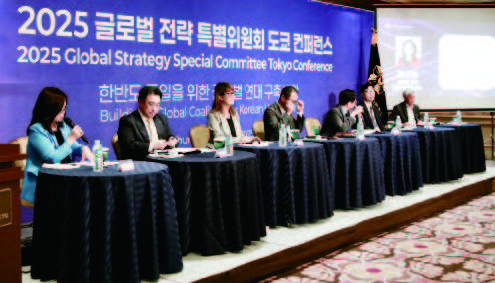
Lee Ju-hyang, Secretary General of the Global Strategy Special Committee, moderating the discussion
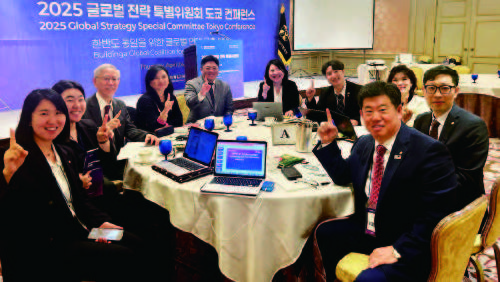
On April 24, starting at 4:40 p.m., the group discussions lasted about 100 minutes, on the topics of public diplomacy and expanding global networks. Members of Group 1 pose for a photo after the discussion.
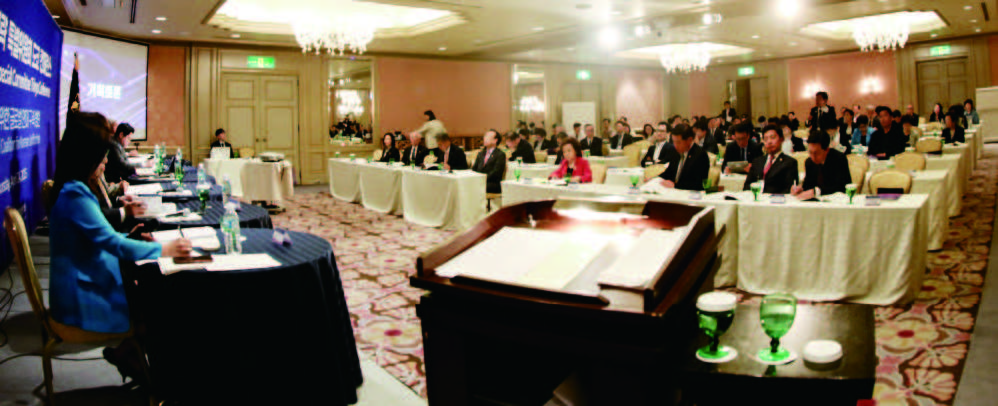
In the discussion session, more than 100 members of the Global Strategy Special Committee and the Eastern Japan Chapter discussed ways to build global solidarity for the unification of the Korean Peninsula.
-
How satisfied are you with the information you have reviewed?







